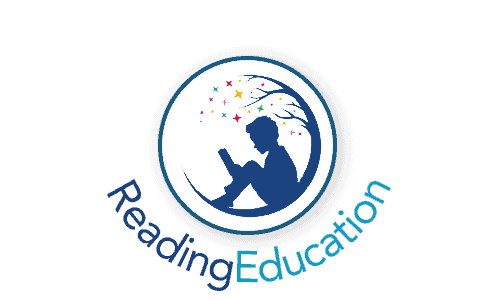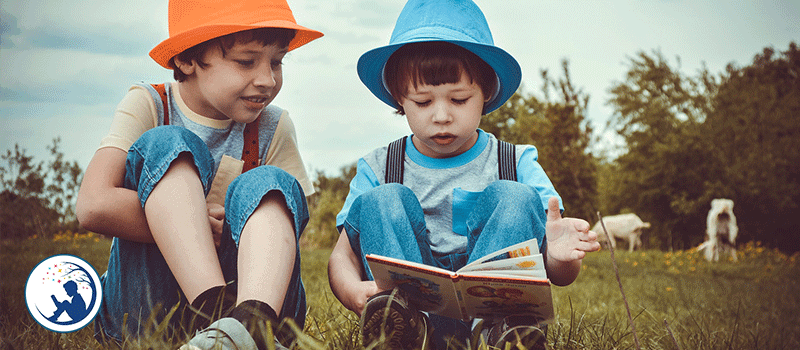As the parent of an infant, toddler, or pre-school child, you’ll no doubt be aware of just how critical reading is to their overall development; therefore, doing everything you can to facilitate and enhance their learning and education is something that comes completely naturally. However, it’s often easier said than done, thanks to the almost infinite amounts of products, toys, and books currently out there.
When I first started trying to find the best books for my toddler, I remember thinking something along the lines of, ‘Wow! There are a TON of books to choose from…but which should I buy? Which are the best for aiding developmental and reading skills? How do I know which books are better than other books?’, and so on, and so forth. In a way, I started to envy my parents because I’m sure the task wasn’t this challenging back when I was a young kid back in the 80s! All joking aside, it is tough to know in which direction turn. Given that this is such a critical period of your child’s early development, the last thing you want to do is make a mistake or get something wrong.
As a parent myself, I felt exactly the same thing…until I spent a few hours every night for a month or two to learn what the best books are for infants, toddlers, and pre-schoolers are – and that’s the research I’m going to share with you today. But don’t worry, it won’t consist of scientific papers or studies, or anything long, drawn-out, and potentially boring! I know that you don’t have all the time in the world, so I’ll keep it as succinct (yet still informative, of course!) as I can. So, without further ado, let’s get started.
How To Choose The Best Books For Infants
A newborn baby’s eyesight is not anywhere near being fully developed at the time of their birth and for several months after this. When they’re this young, their optimal vision is around 12 inches, which is around the distance you’d look at them from if you were holding them up at semi-arm’s length (I’m sure this must have something to do with evolution!). Therefore, when choosing books for very small infants, it’s important to keep the following in mind:
- Opt for small books that are easy to hold and manage. Trying to hold a baby, a book, and turn pages at the same time is hard enough, so don’t make it any harder for yourself!
- Given infants under-developed sight, choose either black and white books or books with very bold, bright, vivid colors. This will make it far easier for your little one to focus as their eyesight develops.
- Although this is probably stating the obvious, it’s always best to keep the books as simple as possible, i.e., a couple of large shapes and one or two words at most.
- Think about the material of the book. Books that can be used in the bath are always a solid choice, and books that are durable and can withstand being thrown, chewed, bitten, etc., is a must!
How To Choose The Best Books For Older Infants
As your infant gets older, oral language becomes even more important; therefore, books with pictures (that have meaning) and simple sentences, nursery rhymes, and the like should be at the forefront of their reading library. After all, older infants love to listen to rhythmic and rhyming texts. Furthermore, keep the following in mind when choosing books for older infants:
- By this age, your child will want to get involved and start turning pages – even if they’re still not sure what a book is or what it does! Infants love to get their hands (and mouths!) on anything they can, so board books with rounded edges means they can do this safely and with ease.
- Opt for books that have big pictures and designs, or potentially even photos of other babies or members of your family.
- Choose books that encourage curiosity and intrigue. Older infants love peek-a-boo, lift-the-flap books, pop-ups books, as well as books that contain hidden surprises. Plus, think about textured books too, and perhaps even books with mirrors!
How To Choose The Best Books For Toddlers
When your little one enters the ‘toddler’ stage, they’ll be motoring around your home, not being able to sit still, continually trying to get up to mischief! However, even though their appetite to explore will be sky-high, it’s essential to read to your toddler on a daily basis (or as often as you can manage). At this age, books filled with action about everyday life and experiences will help your little one to understand the world around them. Here are a few more tips:
- Small, sturdy books with very few or no words help children make up their own stories while looking at the pictures. This will help your child to use their imagination and boost their creativity.
- Toddlers love many things – big, colorful pictures and photographs included! Like older infants, lift-the-flap and other interactive books are a fantastic choice for their inquisitive minds. Exploration is one of the first words that springs to mind when I think of my son when he was in his toddler stage, be that the world around him, people, books, etc.
- By this stage of their early development, toddlers will begin to understand topics such as numbers, feelings, colors, shapes, animals, letters, etc., so choosing books related to these topics should be high on your ‘to buy’ list.
- Bedtime reading is a childhood staple, so don’t neglect bedtime books that help your little one to relax before sleep.
- Books that contain poetry, songs, and nursery rhymes are super easy for toddlers to sing along and memorize.
- Look for books that contain everyday routines and activities, such as mealtimes, greeting others, shopping, going for a walk, etc. This will help to teach them more about the world around them and how to interact with others.
- It’s possible that your little one may have favorite characters from TV shows or movies, so buying books related to these characters will certainly encourage reading. However, it’s crucial to ensure these are age-appropriate before purchasing.
How To Choose The Best Books For Pre-School Kids
In the year preceding the beginning of their schooling journey, your child will no doubt be growing up so fast that you’ll stop to wonder whether they’re actually still a child! Books for pre-school children should contain simple stories yet be brimming full of captivating illustrations and fun text that is best read aloud. Look for books that can be read in one session so your child can understand the story in one go rather than having to remember it the next day. Here are a few more tips for choosing the best books for pre-school children:
- Choose books that facilitate imagination and (even very basic) problem solving (but in a creative way). Children of this age will typically enjoy reading material that relates to real-life and mirrors their thoughts, actions, and concerns. For example, stories about going to school, playing out with their friends, enjoying time with family and pets are great choices.
- Although books for pre-schoolers should contain more words, illustrations should certainly not be forgotten about; kids of all ages love pictures!
- To help further their development and knowledge and prepare them for their schooling journey, choose plenty of ABC books and simple information books about animals, transport, people, geography, buildings, and any other topics you can think of or that your child might be interested in.
- Poetry and nursery rhymes books are still a great choice – and will be for several years to come!
- Now’s the time to (very gently) challenge your little one and see if they can work out what’s going to happen next or if they can fill in the blanks. Buy books that give your child the opportunity to make predictions about words, letters, sentences, and perhaps even stories.
- Explore the world by showing your child books that detail information about other countries and cultures and how they are different from yours.
The Best Books for Infants, Toddlers, and Preschool Kids: A Summary
Ok, so might be quite a lot of info above, but don’t be put off or think it’s going to be too hard or expensive – it really isn’t! At the end of the day, as long as you’re continually stimulating your child’s mind, helping them to develop, teaching them about the world around them and how to interact with it, and encouraging imagination, creativity, and fun, you’ll be doing the best for you them. Choosing the right book isn’t an exact science, nor is there a right or wrong answer – just follow the above advice, and you’ll be doing the best for your little one!

